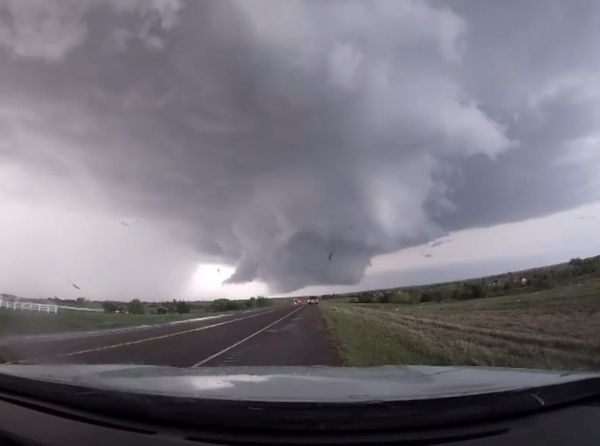
It was mid-August 1997; I was in my 20s and heading from Athens to the Aegean island of Sifnos with three friends. We hopped on a ship at the port of Piraeus and sailed out into the blue waters. Arriving late in the evening, we spent that first night on the beach, close to the port of Kamares.
It was bliss: the lapping of gentle waves a few metres away and the distant music from the bars as we gazed at the stars and the blazing meteors crashing through the atmosphere. You felt you were shedding your old skin like a reptile; it was painful and liberating; it was existential.
Next morning, after breakfast, we found a little villa to rent in the middle of nowhere. Luck? Not really. That was the norm then, the way we lived and holidayed: no planning, no preparation whatsoever.
The islands of the Aegean have long been a place to relax, swim, drink to oblivion and have wild sex. Beyond such earthly pleasures, they have also been a place of enchantment, of metaphysical awe – for pilgrims, Greeks and visitors from abroad alike, down the ages.
Giorgos Seferis, Greece’s first Nobel prize-winning poet, got the idea that he would translate The Book of Revelation while on Patmos in the Dodecanese (where, as legend has it, St John saw his apocalyptic vision). As Seferis watched the sunrise from Patmos, relentless light devouring the landscape, “everything turned into an abyss”.
Modern Greece was “discovered” after the second world war via these enchanted, mystical islands. OK, granted: Patrick Leigh Fermor preferred western mainland Greece or Crete and the Peloponnese, but the place to be in the 1950s and the 1960s was Hydra (where Leonard Cohen resided) or the even more cosmopolitan Mykonos, a favourite of the shipping tycoon Aristotle Onassis, owner of Olympic Airways. Celebrities from Marlon Brando and Grace Kelly to Brigitte Bardot and Jackie Kennedy Onassis flocked to Mykonos, and the island got its own airport in 1971.
For many islanders, and some Greek intellectuals, this was how the Greek islands started to be spoilt. On Astypalaia, in the Dodecanese, I asked a local lad which time of the year he enjoyed best on his island. “Winter, when there are no tourists around,” he said, pointedly, staring at me.
That was in the early 1990s. Little did he know – or I know, for that matter … For years now, successive Greek governments have maintained that tourism is Greece’s “heavy industry”. This was not just a theory or an aspiration: it was a policy that, though it may not actually have been implemented by central government, was realised by the private sector tourism agencies and hotels that the Athens government encouraged.
The policy was turbo-charged after the economic collapse of the early 2010s. In 2019, Greece attracted about 31 million visitors, up from 24 million in 2015. After the coronavirus lockdowns were lifted, some Aegean islands saw an astonishing recovery in tourism. With the sector now accounting for nearly 20% of the nation’s GDP and one in five jobs, driving up visitor numbers has became the focus of national economic strategy.
But now the Greek holiday season of 2023 will be remembered by many as a living hell, with July’s extended heatwave and the wildfires on Evia, Corfu, Rhodes and other islands reducing some resorts to ashes. Thousands of tourists had to flee or be evacuated. The destruction in terms of the natural environment is big and the cost to local communities and Greek tourism is still being counted.
Will this summer of extreme temperatures sour the Aegean island idyll for Greeks, even as the climate crisis compels other tourists to reconsider the meaning of a holiday in the sun and head instead to Denmark or Ireland? I very much doubt it: the lure of the bare, rocky Cyclades, where trees are sparse and wildfires rare, may actually increase. But even before this infernal summer, the cheap, spontaneous August holiday on our islands was becoming unattainable for many ordinary mainlanders.
My family οf four last year turned down the option of an August break on Koufonisi, which is tiny and beautiful. We would have had to pay €600 just for the three-hour car ferry there and back.
A five-day holiday in the most basic accommodation would have cost us at least €2,000. The global energy crisis and Russia’s invasion of Ukraine were both cited as reasons.
We could have done it somehow, but it would have been a case of what we call koroidistika lefta or “sucker money”, when you pay a lot for something that is manifestly not worth it, and you pretty much know it.
Complaining sounds ungrateful. Greece, as a state, earns a lot of money from international tourism and has little choice but to upgrade its infrastructure as a modern state should. It’s just that if we assumed this right to take a breath close to home would always be there for us, we were wrong. Call my sadness about that nostalgia, if you will; I call it loss. Because the Aegean provides something that nowhere else possesses.
On Sifnos there is a tiny ancient church called Eftamartyros (Seven Martyrs). It stands on a bare rock, perched over a cliff, isolated against the blue immensity of the Aegean.
At Eftamartyros, with its white walls and its blue cupola, you are alone with the sea, alone with the sky, alone with the wind. It feels like a very personal pilgrimage.
This vastness of space, time, feeling and reflection is not related to scenic beauty; it has a significance beyond the sphere of the visible.
The Greek poet Odysseas Elytis reflected once on the continuity of the Greek language through the ages. The modern Greek word for “sea”, he pointed out, is thalassa, exactly the same as the word used in the time of Homer. At such places as Eftamartyros, this sense of continuity in time and space is conveyed by the vastness of the sea. The word and the seascape appear infinite; they predated us and they will be there long after we’ve gone. Even with no knowledge of Greek, that sense of permanence is there for anyone willing to listen to the Aegean and be absorbed by its existential awe.
In a world so out of balance, we need more than ever the freedom to lose ourselves in the Aegean from time to time. Some of us will still try to do it – as long as we start planning for August almost a year ahead, and, of course, accept the fact that we’ll be paying the highest rates of sucker money. Because it is actually worth it, even when we can’t afford it. Eftamartyros and that unique feeling of belonging and longing will always be priceless.
Elias Maglinis is an author and the arts editor of the Sunday edition of the Greek newspaper Kathimerini. His most recent book is a nonfiction novel, The Very Last Voyage of Their Lives: Asia Minor, a Travelogue in Times of Peace and Times of War







